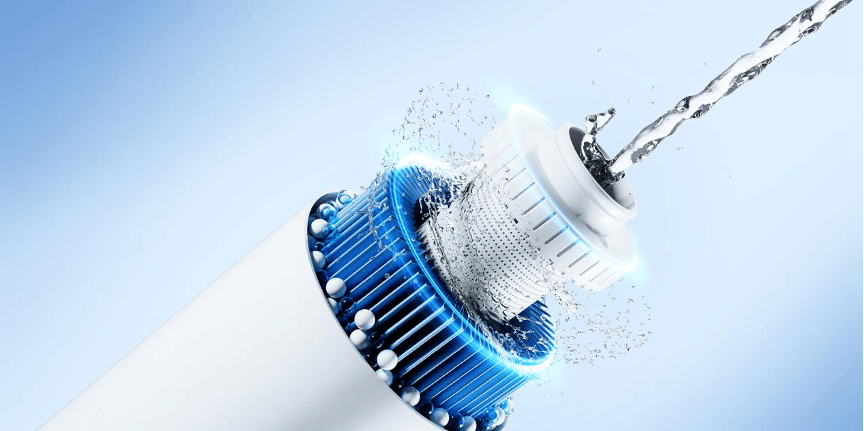Today, clean and safe drinking water is essential for a healthy lifestyle. Water contamination, from heavy metals and chemicals to bacteria, can pose significant risks. Many people are turning to advanced water filtration systems to ensure their families have access to pure water. One of the most popular choices is a reverse osmosis (RO) system. But do you really need one? Let’s take a deeper look at whether an RO system is a necessity for your home.
What is Reverse Osmosis?
Reverse osmosis is a water purification process that removes contaminants by pushing water through a semi-permeable membrane. The membrane filters out a wide range of impurities, including:
- Heavy metals like lead and mercury
- Dissolved salts and minerals
- Chlorine and fluoride
- Pesticides and herbicides
- Microorganisms like bacteria and viruses
- The filtered water is clean and free of most harmful contaminants, making it one of the most effective filtration systems available.
Why do people choose RO systems?
Highly Efficient Removal of Contaminants
RO systems can filter out contaminants that most standard filters cannot, such as nitrates and arsenic, making them particularly useful in areas where water quality is questionable or where the local water supply is compromised.
Improved Taste and Odor
By removing chlorine, sulfur, and other chemicals, RO systems can significantly improve the taste and odor of water. Many people prefer RO water because it tastes fresher and more neutral than tap water.
Long-term Health Benefits
Continuous drinking of clean water can reduce the risk of ingesting harmful substances. For families with members with weak immune systems, such as children or the elderly, using an RO system can provide additional health protection.
The main role of reverse osmosis water purifiers in improving water quality
countertop reverse osmosis water system have the following significant points
Water purification: RO water purifiers can filter out most harmful substances such as lead, sulfates, ions, etc., while also removing odors and improving the taste of water. For those areas with poor water quality, RO systems are a very effective solution
Protecting health: Through reverse osmosis technology, RO systems can eliminate harmful microorganisms such as bacteria and viruses, ensuring early warning safety. This is crucial for people with weaker physical constitutions, such as children and subsequent populations.
Environmental protection and energy saving: Modern countertop RO water purifiers are designed to be more energy-efficient, especially those with higher pure water wastewater ratios. For example, some high-end models offer a 3:1 wastewater ratio, which means that for every 3 liters of clean water produced, only 1 liter of wastewater is produced, reducing water usage.
Easy to use: Compact and easy to transport. Tabletop RO water purifiers do not require tedious installation or professional technical support. You can start using the device by simply connecting it to your desktop, which is perfect for renters or users who want to avoid the hassle of installation.
Signs that you may need an RO system
Your water is highly contaminated
If tests show that your water contains high levels of lead, mercury, arsenic, or nitrates, an RO system is a good investment to protect your health.
You are concerned about taste and odor
If your water smells like chlorine or sulfur, or has a metallic or bitter taste, an RO system can effectively solve these problems.
You have well water
If you rely on well water, an RO system is usually a smart choice. Well water may contain contaminants such as bacteria, pesticides, and chemicals from nearby agricultural activities, and RO systems can remove these contaminants.
You Have Special Health Needs
If anyone in your home has a compromised immune system or a health condition that requires extra precautions with water purity, an RO system offers the highest level of protection.
Alternatives to Reverse Osmosis
If you don’t think you need an RO system, here are a few alternatives to consider:
Activated carbon filters: These filters remove chlorine, unpleasant odors, and improve taste, but they don’t eliminate heavy metals or bacteria.
UV filters: They are effective at killing microorganisms like bacteria and viruses, but they don’t remove chemical contaminants.
Whole-house filters: These filters treat all of your home’s water, often combining carbon filtration and sediment filters to treat a variety of contaminants, but aren’t as comprehensive as RO systems.
Conclusion: Is a Reverse Osmosis System a Necessity?
Whether you need a reverse osmosis system depends largely on the quality of your water supply and personal preference. If your local water source is already high quality and free of harmful contaminants, you may be able to get by with a simpler filtration system. However, if you’re concerned about contaminants or prefer the peace of mind of knowing your water is thoroughly purified, investing in an RO system may be a good option.
For those considering a top-of-the-line water purifier, brands like Ecoviva offer advanced RO systems designed to meet the highest standards of water purity and efficiency. Be sure to test your water quality first to make an informed decision.
Ultimately, clean, safe water is a basic need, and whether you achieve this with an RO system or another method depends on your unique needs and circumstances.
